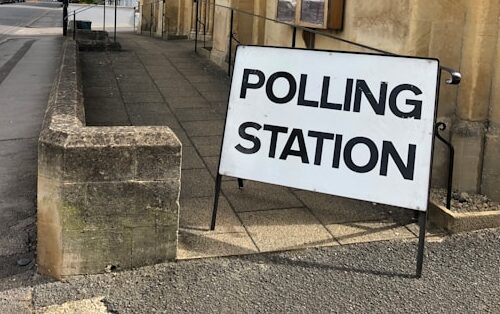Voters across England will decide local councils, mayoral positions, and a by-election in Runcorn and Helsby, marking a key political moment since Labour’s general election victory
Voters across England will head to the polls on May 1st for local and mayoral elections, with 24 councils and six mayoral authorities participating in this key electoral event. The elections come as the first major poll since Labour’s significant victory in last year’s general election, making this a crucial moment for political analysis.
Polling stations will open at 07:00 BST and close at 22:00, with results expected to be declared overnight and on Friday. Voters will decide the fate of approximately 1,650 seats, with elections taking place across 14 county councils, eight unitary authorities, and a metropolitan district. The Isles of Scilly, which operates under a unique governance system, will also be holding elections.
In addition to the local elections, six mayoral races will take place in areas including the West of England, Cambridgeshire and Peterborough, Doncaster, North Tyneside, and – for the first time – in Hull and East Yorkshire, and Greater Lincolnshire. These elections are expected to draw attention as they could shift local political dynamics in these regions.
A significant by-election in Runcorn and Helsby will also take place on May 1st, following the resignation of former Labour MP Mike Amesbury, who stepped down after being convicted of assaulting a constituent. This by-election will decide the new Member of Parliament for the Cheshire constituency, adding another layer of interest to the day’s voting.
While elections are scheduled to be held across many counties, a government decision has postponed the elections in nine areas, where local authorities are undergoing restructuring. This has resulted in elections being delayed in areas such as Buckinghamshire, Cornwall, and Durham, among others.
The election landscape will include key local areas like Cambridgeshire, Derbyshire, Devon, Gloucestershire, and Kent. Other areas include large counties like Lancashire, Leicestershire, Nottinghamshire, and Staffordshire. Additionally, there will be local elections for unitary authorities, including Cornwall and Shropshire, as well as in Doncaster Metropolitan Council.
One notable change in this election cycle is the introduction of mandatory photo ID for voters, which will be required for in-person voting. Over 20 acceptable forms of ID, including passports and driving licenses, are permitted, as well as the newly introduced Armed Forces Veteran Cards. This change marks a significant shift in the voting process and is expected to impact turnout and election day procedures.
Embed from Getty ImagesWhile elections are taking place across England, no local elections are scheduled in Scotland, Wales, or Northern Ireland. The elections in England will focus on key local issues, with different communities expected to make decisions on local governance, infrastructure, and public services.
The BBC and other broadcasters will be observing strict guidelines on the reporting of local election issues until after polling stations close at 22:00 BST. This will prevent any influence on voters and ensure a fair and neutral electoral process. The BBC’s coverage will adhere to these regulations and will provide election results and analysis once voting concludes.
As polling day progresses, political observers will be watching closely to see how local elections reflect broader national trends, particularly in light of Labour’s dominance in the previous general election. Local races could provide insight into shifting political allegiances and serve as an early barometer for national political movements.
With all eyes on the outcomes, the results are expected to shape the political landscape of local governments and mayoral positions for the coming years, influencing everything from local policy to national party strategies.
CHANNEL 4
An exclusive Channel 4 News poll reveals widespread voter disillusionment, with ‘None of the Above’ emerging as the most popular leader choice. The poll, conducted by More In Common, shows 41% of voters believe no current leader would be effective in governing the country. Reform UK’s Nigel Farage is the second most popular leader with 23%, followed by Labour’s Sir Keir Starmer at 19%.
In terms of local election voting intentions, Reform UK leads with 26%, closely followed by the Conservatives at 25%, and Labour trailing at 18%. When asked about resolving council finance issues, 43% of voters selected ‘None of the Above’, while Reform UK garnered 19% and the Conservatives 14%.
The poll also highlights the key local concerns for voters: potholes and road quality top the list at 50%, with council tax and affordable housing also significant issues. The findings suggest a fragmented electorate and growing support for alternative parties, with Reform UK expected to gain ground.
THE SPECTATOR
Sir Keir Starmer’s first major electoral test as Prime Minister, with voters heading to the polls in local elections across England. A total of 1,641 wards, 14 county councils, eight unitary authorities, six mayoral positions, and one parliamentary constituency are up for grabs. After nine months in power, Labour’s honeymoon period is over, and these elections could serve as a gauge of public sentiment under Starmer’s leadership.
Smaller parties, such as the Liberal Democrats and Reform UK, are expected to benefit from growing disillusionment with the major parties. Voters are set to express their frustrations, and these elections could see significant gains for these alternatives, potentially reshaping local political landscapes. This will be a crucial moment for Starmer’s Labour government to demonstrate its strength and connection with the electorate.
